We often remember clearly those moments when a whole new world opened up to us— especially if it defined a turning point in our careers and passions. For Jesús Torres Felipe, the owner of Factoría 77, “Everything changed when curiosity led me to enter a small corner in Seville that sold coffee beans. When I tasted the espresso I was served, I realised that I had never really tasted coffee.”
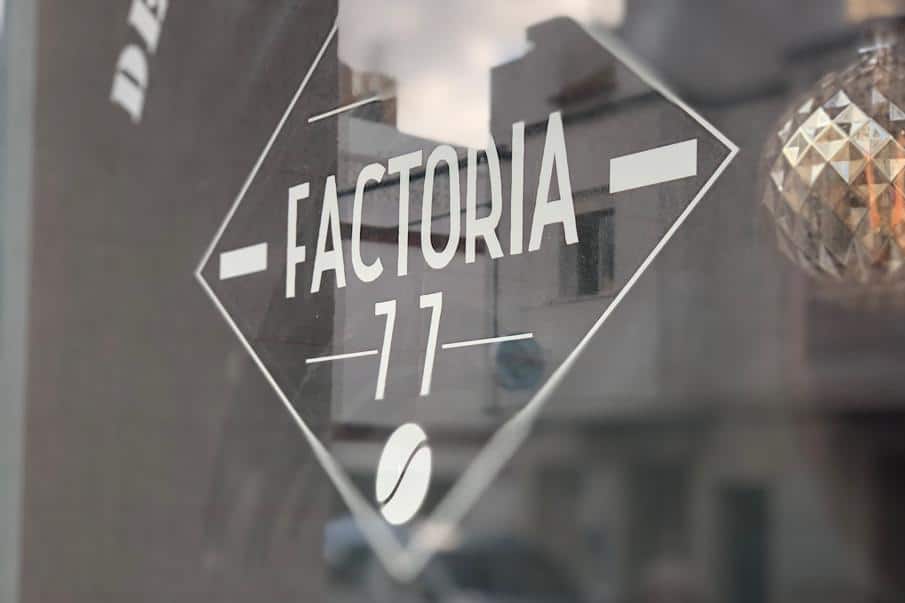
Jesús was born in Madrid and grew up in the capital’s southwestern suburb of Leganés. Though he eventually moved south to the much smaller town of El Puerto de Santa Maria, he credits his formative years in the big, multicultural city as the source of his open-mindedness and love for travel and exploration.
El Puerto sits across a gorgeous bay from the historic city of Cadiz, the capital of a province by the same name. Cadiz and seven other provinces span most of the southern portion of the Iberian peninsula and make up the autonomous community of Andalusia, the second largest territory in Spain. Largely an agricultural region, Andalusia is a land of vast olive tree groves, rolling sunflower fields, Moorish-influenced architecture, fresh seafood, and bright beaches.
If looking for coffee, one can easily find a cortado or a cafe con leche—strong espresso drinks with varying levels of milk, identical from cafe to cafe. Served in short glasses with the largest packets of sugar known to man, these drinks brewed from commodity robusta beans are reliable, inexpensive, delicious in their own way—and just about the farthest thing possible from speciality coffee. While the third wave has indeed made its mark in Spain and is flourishing in the larger cities of Madrid, Barcelona, as well as Seville (the capital of Andalusia), it is largely unknown throughout southern Iberia.
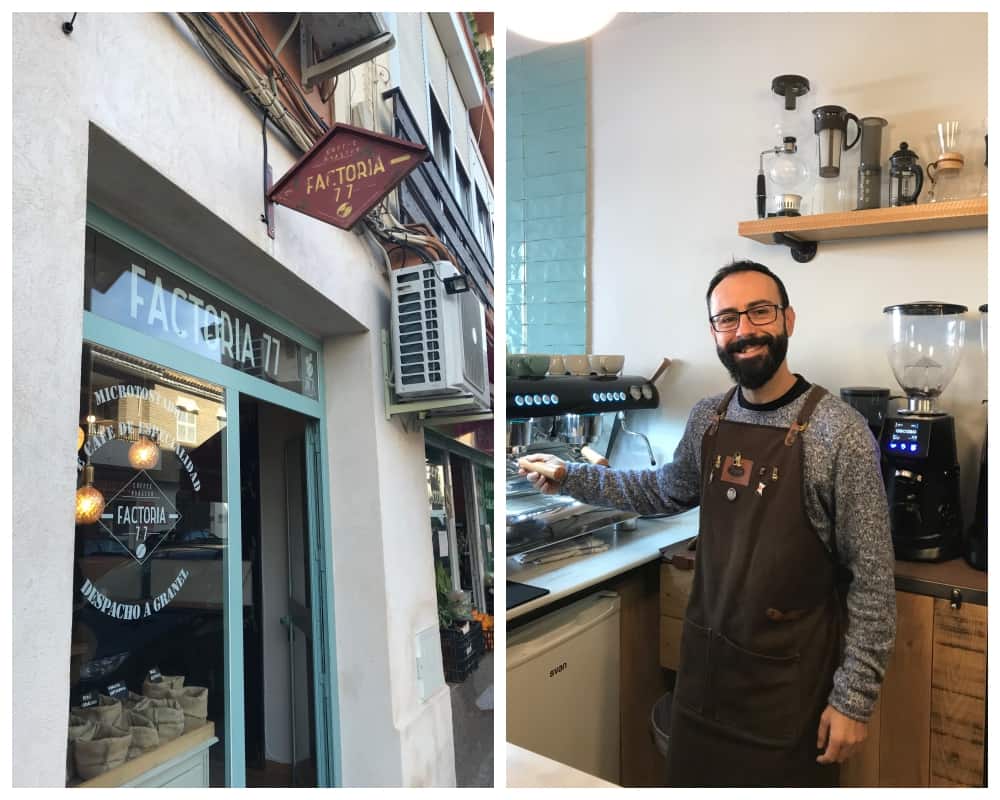
Around Christmas in 2016, Jesús took the trip of just under two hours from El Puerto to Seville, where he discovered speciality coffee. It quickly became his passion, but making such an extreme pivot from his career as an IT consultant to the world of speciality coffee meant that he had a lot to learn. He credits several experts, including Kim Ossenblock in Barcelona and several at the Mr Chava cafe in Osuna, near Seville, who trained him before he went on to earn a roasting-guild certification from the Specialty Coffee Association (SCA).
As Jesús considered where to open his own shop, he knew larger cities such as Madrid were the easiest places to find a market—but the competition was firmly established. “Other provinces had their places of reference in the world of speciality… but in Cadiz, [speciality coffee] was almost taboo,” said Jesús.
Cadiz is surrounded by multiple towns, as well as a joint Spanish and US military base whose population Jesús thought would quickly become regular customers. “In the middle of it all is El Puerto, and as it was the only town I knew, it won hands down.”
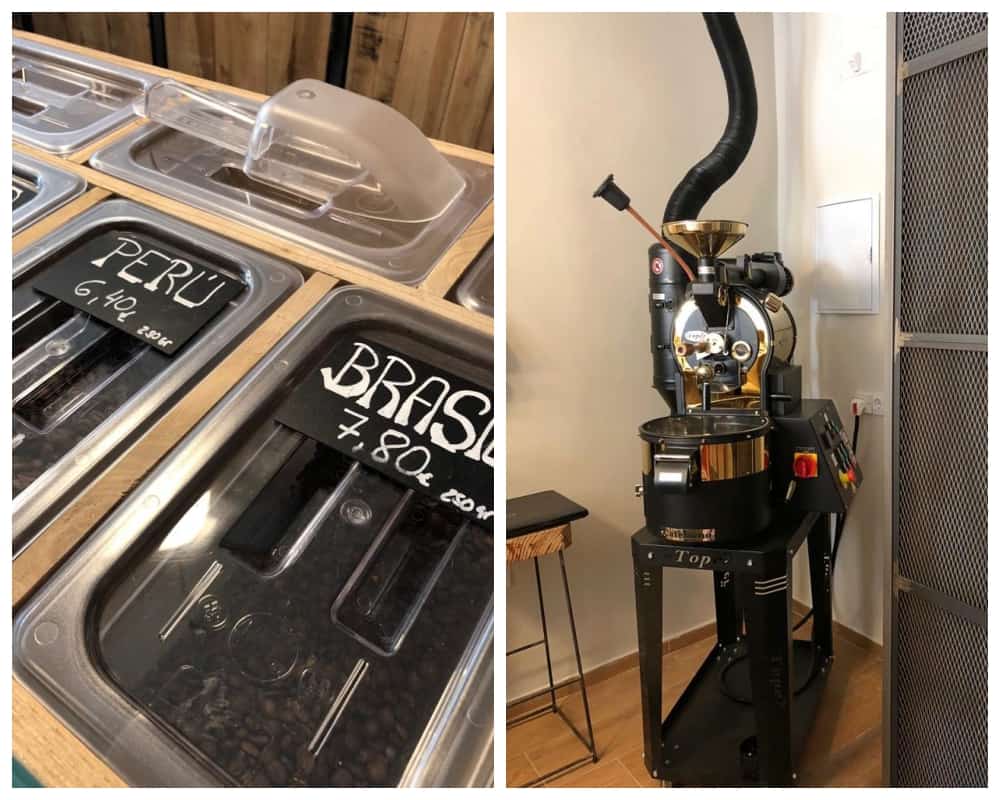
Wedged between a bakery and a produce shop on a bustling downtown street, Jesús’ shop carries the name “Factoría 77,” which is meant to conjure the image of a craft workshop while referencing the cylinder roasting machine’s advent around the 1870s. Choosing a location within El Puerto was as important as choosing the city itself, he explained. The building needed a chimney to vent the smoke generated during the roasting process, yet also needed to be in a heavy traffic zone.
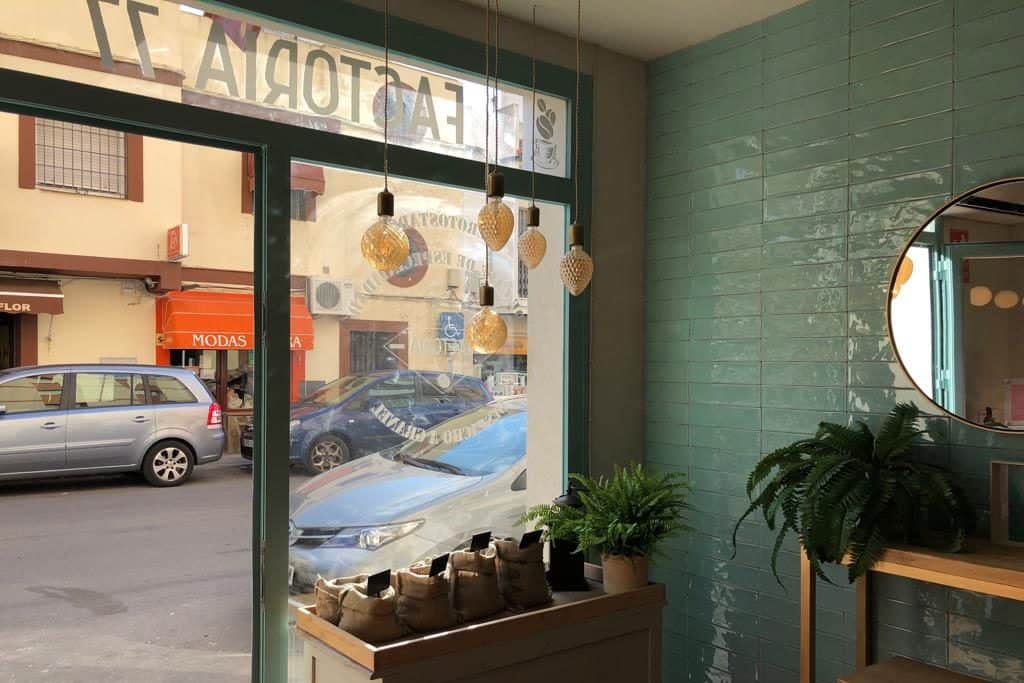
The roastery cafe interior is tastefully decorated, its space clean and modern with both small tables and bar-style seating. Shelves display an eclectic mix of coffee-making apparatuses and tomes on related subjects. An electric Toper Cafemino roaster dominates the back corner behind the bar. Across from it are several racks of speciality teas, another of the shop’s offerings. Here in his factoría, Jesús breaks from the standard Andalusian drinks and encourages visitors to try drip coffee from a Chemex, fresh batches of cold brew, and espresso shots pulled on his Ascaso Big Dream coffee machine.
While curious neighbours or passers-by occasionally wander through his door, most visitors come after seeing Jesús on Facebook and Instagram or after having tried his products at local artisan farmer’s markets where he often sets up a tent. Word-of-mouth is often the most effective at bringing in new customers, he says.
However they find Factoría 77, newcomers usually become regulars. “It’s just a matter of time. Once the customer tries the coffee it’s difficult for them to drink commodity coffee. The difference in the quality and flavour, it’s too huge not to be noticeable. Each one who enters into the shop, it’s one that becomes a regular customer.” But outreach is by no means easy, and requires in his words, “patience, patience, and more patience.”

When Jesús roasts, he focuses on batches for the espresso machine or the Italian mocha style. But he is passionate about exposing his fellow Spaniards to the drip method as well, which is almost completely nonexistent in Andalusia. “If you prepare [my roasts] in a drip, the fruity nuances they have are incredible.” Jesús strongly opposes another of Andalusian coffee’s hallmarks, the torrefacto roasting style, which involves adding sugar during the roasting process.
“If you compare [my roasting] to the torrefacto, which is like a full ashtray, you will find acidity in mine and chemical astringency in the torrefacto. Worse than the worst medicine, [torrefacto] never could be ‘well done.’ In the end, it’s burned sugar. So, BAD for flavour and BAD for health!”
As a bannerman of speciality coffee, Jesús is optimistic. “My expectations are that Cadiz will live up to the standards of Seville and Malaga, which are the benchmarks in the area.” He has created a working group with several colleagues to grow as professionals and bring visibility to the speciality coffee world. He envisions more and more independent roasters and coffee shops springing up throughout the area. He hopes, by spreading awareness and opening people’s eyes (or rather, tastebuds), “the public will demand a decent coffee.”
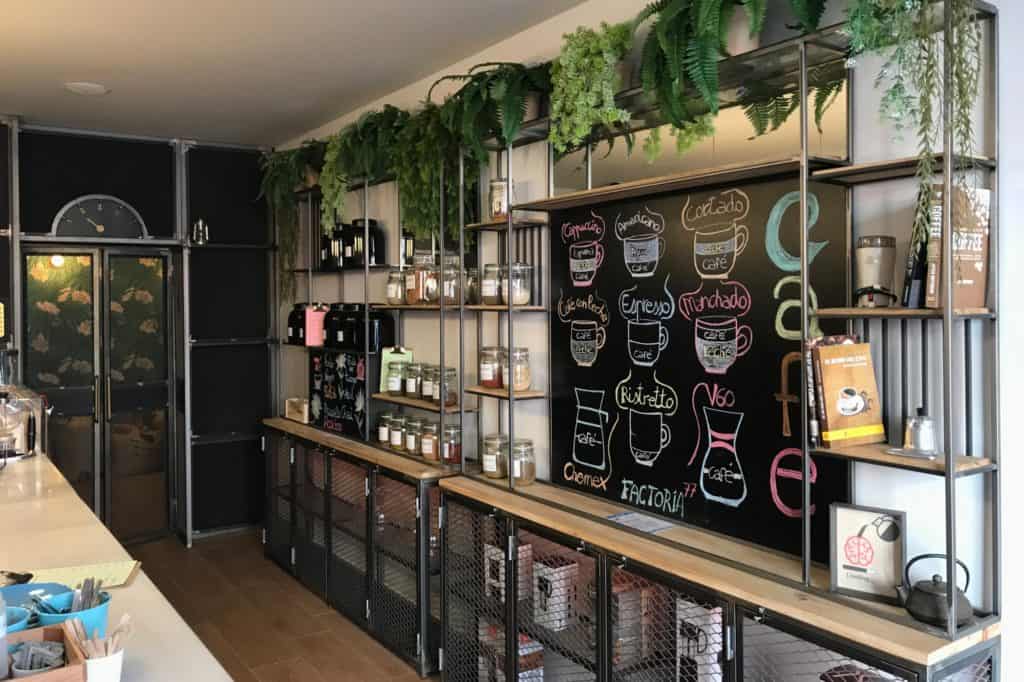
Andalusia is a region with agriculture at its very heart. El Puerto is one of three towns that make up the “Sherry Triangle,” which produce all of the world’s sherry as well as many other fine wines. In such an area specialising in wines, sherries, and olive oils, the people understand and appreciate the role of ‘Denominación de Origen’ (D.O.), and they understand the finesse involved in carefully growing products to bring out subtleties of taste. These concepts relate directly to third wave coffee. It’s only natural, then, that appreciation will follow the introduction.
“The worst part of all this is the public’s ignorance of this product. Everyone knows coffee, but it’s the bad coffee. They don’t know that it can be improved,” Jesús says. “I thought there would be people who would reject it, but that hasn’t happened yet. Whoever has never tried it and does, is another person who joins this movement.”

